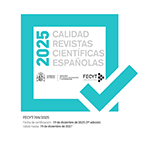¡A LA HUELGA! Conflictos laborales y marcos políticos en España. Del Tardofranquismo a la Democracia
Abstract
We propose an analysis of the complex relationships between labor conflicts and political contexts. In their postimetries, the Franco´s dictatorship generated and entrenched conflicts, giving them an inevitable political dimension. The Transition was a way for the social pact, which lowered the polítical meaning or changed its senses. The economic crisis created emergencies that the dictatorship couldn’t resolve, but democracy neutralized, thanks to the neutralization of the political content of labor conflicts. The worker's protest in the convulsive years of industrial reconversion reached episodes of considerable virulence, but it lacked politically destabilizing effects. A cycle of general strikes between the end of the 1980s and the beginning of the 1990s turned the unions into major players in defining social policies, before their strength clearly declined in the following years. Apart from the general context it is the political context that gives meaning to social mobilization
Downloads
Article download
License
In order to support the global exchange of knowledge, the journal Sociología del Trabajo is allowing unrestricted access to its content as from its publication in this electronic edition, and as such it is an open-access journal. The originals published in this journal are the property of the Complutense University of Madrid and any reproduction thereof in full or in part must cite the source. All content is distributed under a Creative Commons Attribution 4.0 use and distribution licence (CC BY 4.0). This circumstance must be expressly stated in these terms where necessary. You can view the summary and the complete legal text of the licence.









